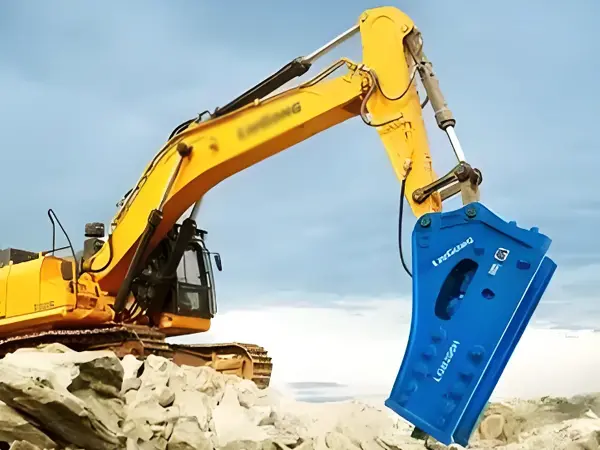The Essential Role of Excavator Hydraulic Cylinders in Construction Machinery
Release time:
2025-03-06
--- Excavator hydraulic cylinders are critical components in modern construction machinery, specifically designed to facilitate the movement and operation of excavators. These hydraulic cylinders convert hydraulic energy into mechanical energy, allowing for powerful and precise movements necessary for various tasks, such as digging, lifting, and moving heavy materials. Understanding the workings a
---
Excavator hydraulic cylinders are critical components in modern construction machinery, specifically designed to facilitate the movement and operation of excavators. These hydraulic cylinders convert hydraulic energy into mechanical energy, allowing for powerful and precise movements necessary for various tasks, such as digging, lifting, and moving heavy materials. Understanding the workings and importance of excavator hydraulic cylinders can significantly enhance the efficiency and capability of your machinery.
At the core of an excavator hydraulic cylinder is the principle of hydraulics, which utilizes pressurized fluid to create movement. The cylinder consists of a cylindrical barrel, piston, and rod. When hydraulic fluid is pumped into the cylinder, it creates pressure that pushes the piston, enabling the rod to extend or retract. This action is essential for the various functions of an excavator, such as the boom lift, arm articulation, and bucket operation.
The durability and reliability of hydraulic cylinders are paramount. They are typically made from high-strength materials to withstand the intense pressure and frequent usage experienced on construction sites. Regular maintenance is crucial; operators should routinely check for leaks, ensure proper fluid levels, and inspect for signs of wear and tear. This not only prolongs the life of the hydraulic cylinders but also ensures optimal performance of the excavator as a whole.
One of the notable advantages of excavator hydraulic cylinders is their ability to provide precise control. This precision is essential for tasks that require a high degree of accuracy, such as trenching, grading, and demolition. Operators can adjust the speed and force of the hydraulic movements, making it easier to manage delicate tasks or heavy lifting scenarios. This level of control enhances safety and efficiency, reducing the risk of accidents on-site.
Additionally, the design of hydraulic cylinders allows for the creation of more compact and powerful machinery. As excavators are often used in confined spaces or complex environments, having hydraulic cylinders that can deliver high force in a smaller package is a significant advantage. This compactness also contributes to the overall maneuverability of the excavator, enabling it to operate in tighter areas that may be inaccessible for larger machinery.
In conclusion, excavator hydraulic cylinders play a vital role in enhancing the functionality and efficiency of construction machinery. Their ability to convert hydraulic energy into mechanical power enables excavators to perform a range of tasks with precision and reliability. By understanding these components and maintaining them properly, operators can ensure their machinery runs smoothly, improving productivity and safety on job sites. Whether you are engaged in large-scale construction projects or smaller tasks, the importance of hydraulic cylinders cannot be overstated, making them an essential aspect of excavator performance.
Excavator hydraulic cylinders are critical components in modern construction machinery, specifically designed to facilitate the movement and operation of excavators. These hydraulic cylinders convert hydraulic energy into mechanical energy, allowing for powerful and precise movements necessary for various tasks, such as digging, lifting, and moving heavy materials. Understanding the workings and importance of excavator hydraulic cylinders can significantly enhance the efficiency and capability of your machinery.
At the core of an excavator hydraulic cylinder is the principle of hydraulics, which utilizes pressurized fluid to create movement. The cylinder consists of a cylindrical barrel, piston, and rod. When hydraulic fluid is pumped into the cylinder, it creates pressure that pushes the piston, enabling the rod to extend or retract. This action is essential for the various functions of an excavator, such as the boom lift, arm articulation, and bucket operation.
The durability and reliability of hydraulic cylinders are paramount. They are typically made from high-strength materials to withstand the intense pressure and frequent usage experienced on construction sites. Regular maintenance is crucial; operators should routinely check for leaks, ensure proper fluid levels, and inspect for signs of wear and tear. This not only prolongs the life of the hydraulic cylinders but also ensures optimal performance of the excavator as a whole.
One of the notable advantages of excavator hydraulic cylinders is their ability to provide precise control. This precision is essential for tasks that require a high degree of accuracy, such as trenching, grading, and demolition. Operators can adjust the speed and force of the hydraulic movements, making it easier to manage delicate tasks or heavy lifting scenarios. This level of control enhances safety and efficiency, reducing the risk of accidents on-site.
Additionally, the design of hydraulic cylinders allows for the creation of more compact and powerful machinery. As excavators are often used in confined spaces or complex environments, having hydraulic cylinders that can deliver high force in a smaller package is a significant advantage. This compactness also contributes to the overall maneuverability of the excavator, enabling it to operate in tighter areas that may be inaccessible for larger machinery.
In conclusion, excavator hydraulic cylinders play a vital role in enhancing the functionality and efficiency of construction machinery. Their ability to convert hydraulic energy into mechanical power enables excavators to perform a range of tasks with precision and reliability. By understanding these components and maintaining them properly, operators can ensure their machinery runs smoothly, improving productivity and safety on job sites. Whether you are engaged in large-scale construction projects or smaller tasks, the importance of hydraulic cylinders cannot be overstated, making them an essential aspect of excavator performance.





